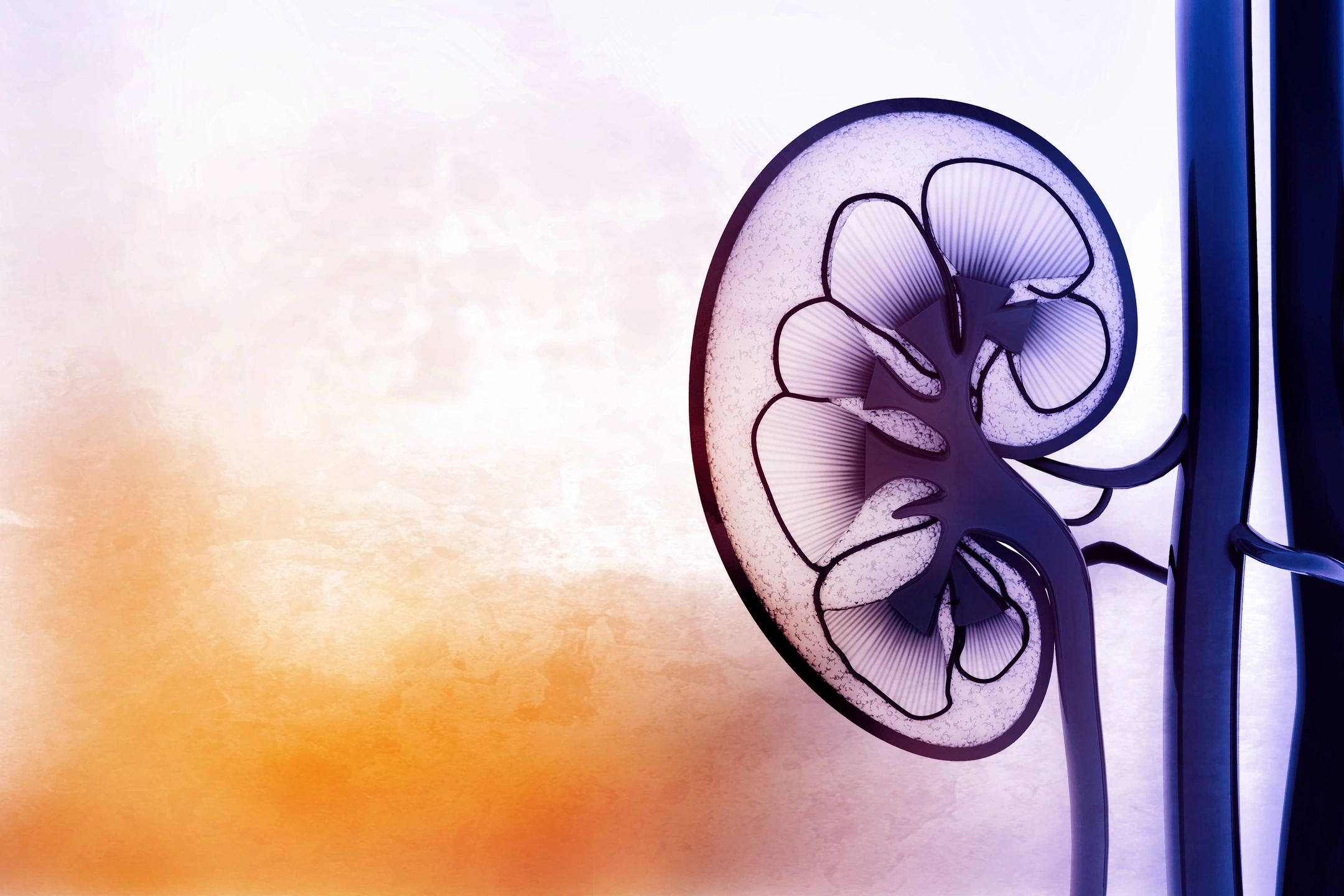Kidneys Part 2

Kidneys Part 2
Dr. Claire Arcidiacono, ND
In the first part of our discussion on kidney health we reviewed basic information such as what the kidneys do for us and tests that can measure our kidney health. (1) In this blog we will review the things that can go wrong with our kidney health. So, without further ado let’s get into it, shall we?
What are the most common complications that can occur when it comes to our kidney health? Well one of the most well-known complications is the development of kidney stones. Kidney stones are exactly what they sound like, solid masses or rocks that form in the kidneys. These stones are much more common than you might expect. In fact, approximately 1 in 10 people will have a kidney stone sometime in their lifetime. But just what are these stones made of? There are 4 types of stones, and the type is determined by what they are made up of. Calcium-oxalate and calcium phosphate form from a high oxalate or low calcium diet especially when you are not drinking enough water. These are the most common forms of stones. Uric acid stones can form from animal proteins which can increase uric acid. Struvite stones are associated with bacterial infections. Lastly cysteine stones form when you have an inherited condition that makes you form them. One of the most common reasons that kidney stones form in general is NOT drinking enough water. Having a family history of kidney stones also can increase your risk. Diet-wise eating a diet high in meat/ protein, salt and sugar can increase your risk. Taking high dose vitamin C and even certain medications can be a risk factor for stones. Having certain medical conditions or having any stomach/intestinal surgery can also increase the risk for stones. Lastly, having a blockage in your kidney can lead to the development of stones.
When you have kidney stones you may experience nausea/vomiting and fever/ chills. You may feel an urge to urinate but be unable to or if you do urinate there may be pain. Your urine may be bloody, cloudy, or foul smelling. Smaller stones will have fewer symptoms. (2)
Another common complication is the occurrence of kidney infections. Approximately 1 in 2000 people get a kidney infection every year in the US. Risk factors for kidney infections include anything that keeps the urine in the urinary tract and allows bacteria to grow and back up into the kidneys. For example, pressure on the bladder during pregnancy, uterine prolapse, enlarged prostate and even kidney stones. If you have vesicoureteral reflux, it increases the risk of an infection. Certain conditions such as diabetes can increase your risk. The symptoms are the same as listed for kidney stones. (3)
You can also develop kidney cancer. Each year more than 62,000 Americans are diagnosed with kidney cancer. Kidney cancer is approximately 3.7% of all cancers in the US. Risk factors include a family history, radiation therapy, gene mutations and even long-term dialysis. Obesity and high blood pressure are also risk factors. Smoking is another risk factor. Certain genetic disorders can also increase the risk of cancer. In addition to the symptoms of kidney stones you may have a lump in your kidney area. You may also feel fatigue, an overall feeling of not feeling well, flank or bone pain and even have a loss of appetite and weight loss. You may develop high blood pressure. Lastly you may become anemic. (4)
Another condition you may have heard of is the development of kidney cysts. These are small, fluid filled or solid pouches that form on the kidneys. (5) I will talk more about these when I review polycystic kidney disease in my next blog.
Other conditions that can affect the kidney include diabetes related nephropathy or hypertensive nephropathy. There is also proteinuria and uremia. (1) While there are other conditions that can affect the kidney I wanted to focus on these since they are the most frequently asked about.
Our next blog will be talking about Polycystic kidney disease, chronic kidney disease and kidney failure. For some supplements that are helpful for both the liver and kidneys look at my blog Liver and Kidney intermission. It talks about such supplements as NAC, L Carnosine, Milk Thistle and even Resveratrol!
Sources:
- https://my.clevelandclinic.org/health/body/21824-kidney
- https://my.clevelandclinic.org/health/diseases/15604-kidney-stones
- https://my.clevelandclinic.org/health/diseases/15456-kidney-infection-pyelonephritis
- https://my.clevelandclinic.org/health/diseases/9409-kidney-cancer-overview
- https://my.clevelandclinic.org/health/diseases/14884-kidney-cysts
